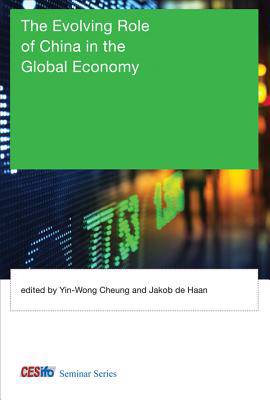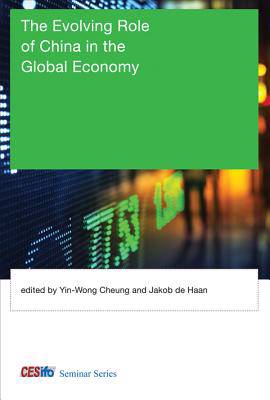
- Afhalen na 1 uur in een winkel met voorraad
- Gratis thuislevering in België vanaf € 30
- Ruim aanbod met 7 miljoen producten
- Afhalen na 1 uur in een winkel met voorraad
- Gratis thuislevering in België vanaf € 30
- Ruim aanbod met 7 miljoen producten
The Evolving Role of China in the Global Economy
Omschrijving
Experts analyze four factors in China's economic growth: exchange rate policy, savings and investments, monetary policy, and foreign direct investments.
China is now the world's second largest economy and may soon overtake the United States as the world's largest. Despite its adoption of some free-market principles, China considers itself a "socialist-market economy," suggesting that the government still plays a major role in the country's economic development. This book offers a systematic analysis of four factors in China's rapid economic growth: exchange rate policy, savings and investment, monetary policy and capital controls, and foreign direct investment (FDI).
Contributors offer fresh perspectives on the undervaluation of the renminbi, the dollar peg, and China's macroeconomic relationships with the rest of the world. They review factors shaping China's saving dynamics and analyze the growth of the private sector despite limited access to external finance. They examine the monetary policy independence of the People's Bank of China, offshore markets for China's currency, and the effectiveness of China's capital controls. Finally, they consider Chinese FDI in terms of China's growing demand for energy and raw materials, exploring the factors that drive China's FDI in the conventional oil-producing countries and in Africa.
Specificaties
Betrokkenen
- Uitgeverij:
Inhoud
- Aantal bladzijden:
- 457
- Taal:
- Engels
- Reeks:
Eigenschappen
- Productcode (EAN):
- 9780262018234
- Verschijningsdatum:
- 16/11/2012
- Uitvoering:
- Hardcover
- Formaat:
- Genaaid
- Afmetingen:
- 162 mm x 237 mm
- Gewicht:
- 762 g

Alleen bij Standaard Boekhandel
Beoordelingen
We publiceren alleen reviews die voldoen aan de voorwaarden voor reviews. Bekijk onze voorwaarden voor reviews.










